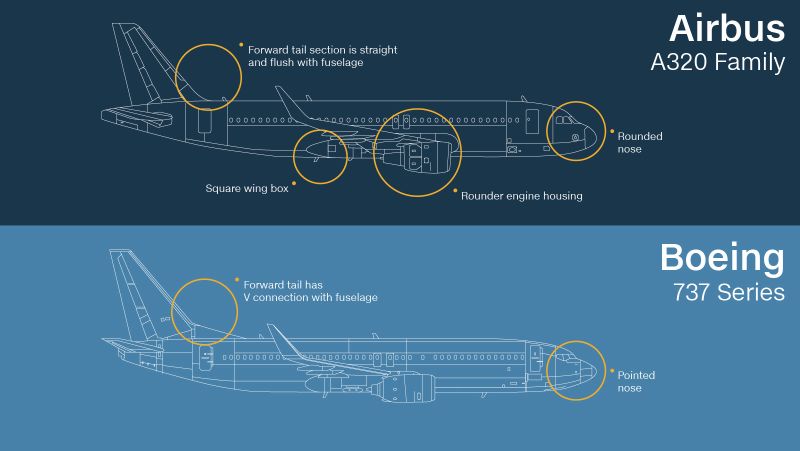Start the day here
Harris slams Trump’s “enemy from within” comment. Early voting begins in Georgia. What a La Niña winter could mean for the US.
Airbus vs. Boeing: The Differences Are in the Details
Introduction
When it comes to commercial aviation, two names dominate the industry: Airbus and Boeing. These aerospace giants compete fiercely, but their approaches to technology, market strategy, and aircraft design are markedly different. In this article, we will delve into these differences, providing insights that illuminate why each company stands out in its own unique way.
Technological Innovations
Both Airbus and Boeing are at the forefront of technological advancements in aviation. Airbus is known for its incredible innovations in fuel efficiency and sustainable practices. For example:
- Airbus’s A320neo program has introduced more efficient engines, significantly reducing fuel consumption.
- They focus on lightweight materials and aerodynamics to enhance performance.
On the other hand, Boeing also emphasizes innovation, particularly with its Dreamliner series.
- The 787 Dreamliner utilizes advanced composite materials, making it one of the lightest commercial aircraft.
- Boeing has invested heavily in wingspan technology, which optimizes fuel economy and overall efficiency.
Market Strategy
Market strategies differ significantly between Airbus and Boeing. Airbus tends to leverage a multi-faceted approach to cater to a diverse range of customers across different markets. Moreover, their focus on customer service has positioned them favorably in regions looking for comprehensive solutions. Conversely, Boeing primarily targets large airlines, providing customization options to meet specific operational needs.
Aircraft Models Comparison
Examining specific models reveals deeper differences in design philosophy:
- The Airbus A380, known for its capacity, caters to high-density routes effectively.
- Boeing’s 737 MAX offers flexibility for low-cost carriers, making it an attractive choice for budget airlines.
Global Presence and Influence
Both manufacturers have significant influence worldwide. Airbus maintains a strong foothold in Europe, while Boeing dominates the North American market. Consequently, regional preferences and regulations often dictate purchase decisions. Additionally, factors like political considerations and international relations can also play crucial roles in procurement strategies.
Conclusion
In conclusion, the differences between Airbus and Boeing extend far beyond their product lines. As they continue to innovate and adapt to market demands, understanding these key distinctions is essential for stakeholders in the aviation industry. Whether your interests lie in technological advancements, market strategies, or aircraft design, both companies offer remarkable contributions that shape the future of air travel.




